The week raced by with payments, fintech and e-commerce news from around the world mostly revolving around coronavirus with some interesting standouts in addition. Here are the key payments industry stories you need to know.
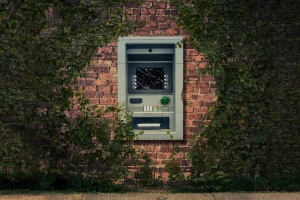
Is the coronavirus killing off cash?
Tech firms see the opportunity they’ve been waiting for as shoppers and business recoil from paper money. Who’s hurt when legal tender goes away? What once seemed like the oldest, most reliable way of paying now seems fraught: A physical object changing hands, bringing people closer than 6 feet, covered in who knows what. Some of the changes might be temporary. And some might not – which has Silicon Valley excited, and others worried. Read more…
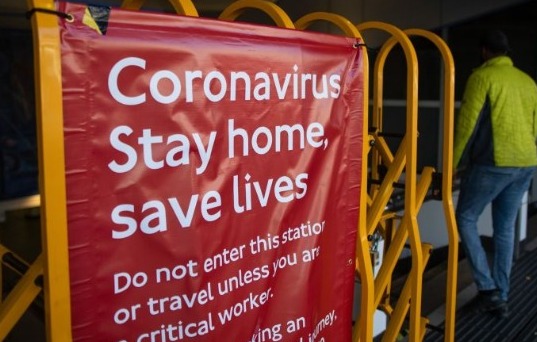
As coronavirus-induced chargebacks soar, Mastercard attempts triage
Credit card chargebacks were rising in certain categories prior to the coronavirus outbreak, but the pandemic is causing a spike in all types of payment card disputes, according to Mastercard. Few categories are higher than airline tickets, where chargebacks have risen from an average of .5% to 20% as consumers try to get back money spent on canceled flights, said Johan Gerber, Mastercard’s executive vice president of cyber and innovations. Friendly fraud – in which consumers dispute a legitimate transaction – is also spiking. Read more…

March retail sales plummet during coronavirus pandemic
Retail sales saw their biggest monthly drop on record during March as the coronavirus pandemic forced restaurants, bars and many stores to temporarily close across the nation and stay-at-home orders also impacted gasoline sales, the National Retail Federation said today. But sales soared at grocery stores and were up at other retailers deemed “essential” as well, offsetting some of the decline. The US Census Bureau said overall retail sales during March were down 8.7% seasonally adjusted from February and down 6.2% unadjusted year-over-year. The monthly drop is the largest ever recorded, exceeding a 4.3% decline in November 2008 during the Great Recession. Read more…
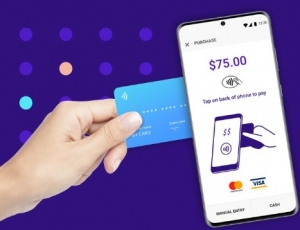
Mobeewave adds tech for high-value contactless transactions
Contactless technology provider Mobeewave is launching tap-to-phone features that remove current contactless payment limits for merchants and consumers globally. Montreal, Canada-based Mobeewave enables businesses to accept contactless payments by tapping a card or a digital wallet onto the back of an NFC-enabled mobile device. Its new Mobeewave Limitless platform allows the tap-to-phone transaction to move through 3D Secure 2.0 fraud protection for online card-not-present transactions, effectively removing the need to enter a PIN, thus enabling a high-value transaction. Read more…

Stripe raises $600M at $36B valuation in Series G extension, says it has $2B on its balance sheet
In the latest development, Stripe, a well-known payments unicorn, today announced that it had raised another $600 million in new capital, money that it plans to use to continue investing in product development, further global expansion, and strategic initiatives. The company has become an active investor in a number of startups, some of which are strategic partners for the company as it moves into new areas to complement its core online payments business. Read more…
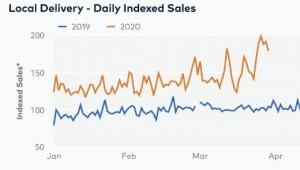
Consumer spending shifts by industry in the COVID-19 era
The coronavirus continues to impact Americans’ daily lives as many face the stark reality of shelter-in-place orders and a volatile financial market. By analyzing consumer spending, Second Measure transaction data can surface U.S. spending trends in near-real time to provide insights in these unprecedented times. Recent data reveals, as of the week of March 23 – 29, overall US consumer spending is down 7%, relative to the comparable week last year. Read more…

Financial cyberthreats in 2019
In 2019, we witnessed a number of significant changes in the cyberthreat landscape. Cybercriminals started to lose interest in malicious cryptocurrency mining and turned their attention to the broader topic of digital trust and privacy issues. How did all those changes affect financial security around the world? Although the financial industry did not witness any major cases in 2019, the statistics show that particular categories of users and businesses are still being targeted by criminals. Kaspersky prepared this report to provide a more detailed picture of the situation. Read more…

Amazon is encouraging customers to buy less
The pandemic has many of us acting in unusual ways, and the world’s largest e-commerce company is no exception. In a stunning reprieve from the prerogatives of capitalism, Amazon.com Inc. has begun discouraging users from buying things they don’t need. Amazon is suppressing extraneous consumption in various ways, according to a report in the Wall Street Journal. It isn’t planning its normal promotions. It’s not telling you what other customers bought. It has even delayed Prime Day indefinitely. Read more…

Bogus vaccines. Fake testing sites. Virus frauds are flourishing.
Offers of bogus drugs to prevent or treat coronavirus infection. Websites selling fake vaccines. False promises of speedier receipt of government stimulus checks. This is the new face of fraud. The Federal Trade Commission has received more than 18,000 coronavirus-related complaints, according to commission data from January through April 15. More than half the complaints involved some type of fraud, with reported losses of nearly $9 million. Read more…
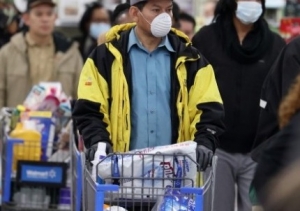
What consumers are telling us about COVID-19 and its implications for retail
To better understand how consumers are adjusting their expectations, incomes, spending and shopping behavior during the COVID-19 crisis, McKinsey conducted a US consumer sentiment survey. In general, the findings show American consumers are relatively positive when it comes to the economy. However, when it comes to their earnings, spending and purchasing, attitudes and behaviors have been changing significantly over the last four weeks as the crisis has escalated. Read more…
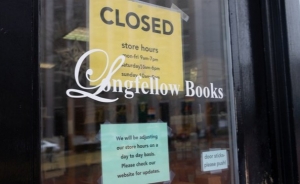
What retail could look like when stores reopen
Retailers have closed their doors to help stop the spread of the coronavirus. But things might not revert back once they open again, according to industry experts. Cowen analysts said department stores have about five to eight months of liquidity before a cash crunch becomes a risk factor. JCPenney has about eight months of available cash, Macy’s has about four and a half months and Kohl’s has about five months, according to Cowen’s analysis. The analysts previously pegged Nordstrom at about seven months but have since revised their forecast to one year. Read more…
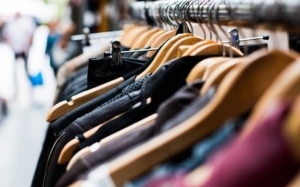
COVID-19 wreaks havoc on inventories
Just when retailers had pared down thanks to a busy holiday season, merchandise is piling up again. After a busy holiday season that allowed retailers to make a dent in what for many had become bloated inventory, especially in apparel, the COVID-19 pandemic, by keeping consumers away from stores, is reversing much of that progress. Most retailers selling apparel, including specialty stores, department stores, sporting goods stores, and mass merchants, had pared down their inventories, even elevated ones, in the fourth quarter, according to an April 2 inventory tracker from Coresight Research. Read more…

Ecommerce companies start taking orders for ‘non-essentials’ from April 20
E-commerce firms will accept online orders for ‘non-essential’ items starting this weekend, as they gear up to restart operations fully from Monday in line with a central government order issued on April 15. Sale of products deemed non-essential – including smartphones, personal computers, electronics items, apparel, furniture, and home décor – form 90% of the gross merchandise value (GMV) for large online marketplaces. Most e-tailers would start delivering all products from April 20, although Amazon India had sought greater clarity on the guidelines from the government. Read more…
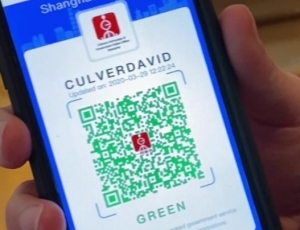
China is fighting the coronavirus with a digital QR code. Here’s how it works.
Relying on mobile technology and big data, the Chinese government has used a color-based “health code” system to control people’s movements and curb the spread of the coronavirus. The automatically generated quick response codes, commonly abbreviated to QR codes, are assigned to citizens as an indicator of their health status. Although authorities have yet to make the health codes compulsory, in many cities, citizens without the app wouldn’t be able to leave their residential compounds or enter most public places. Read more…








LET’S CONNECT